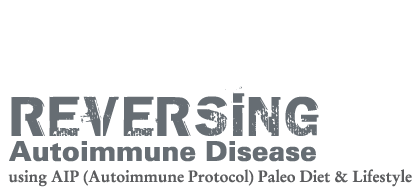Mindfulness
The practice of meditation and particularly mindfulness mediation has become a subject of great interest and more and more scientific studies are proving its effectiveness in treating stress and chronic illness as well as psychiatric disorders.
Although it may conjure up images of a yogi sitting on a mat, crossed-legged say “OM”, it is in fact a practice that can be done by anybody at anytime, with a few simple techniques. I think that from anyone suffering from an Autoimmune condition, mindfulness is a wonderful technique to help you cope and reduce stress. Remember that following the AIP, isn’t about food alone. Lifestyle Aspects are critically important!

What is Mindfulness?
Mindfulness has been described as dispassionate, non-evaluative, and continuous moment-by-moment awareness of, sensations, perceptions, emotions and thoughts [1]. A similar definition explains mindfulness as “the awareness that emerges through paying attention on purpose, in the present moment, and non-judgmentally to the unfolding of experience moment by moment [2].”
There is an assumption that meditation involves emptying your mind; or making your mind free of thoughts. As anyone knows this can be virtually impossible. Practices like Transcendental Mediation, which I learnt many years ago, emphasise that instead of trying to empty your mind of thoughts, you should instead focus on a particular word or mantra and say that mantra to yourself repeatedly.
Mindfulness too, also doesn’t require that you are free of all thoughts or worry; instead it actually wants you to focus on them with clarity and awareness. When we are stressed or anxious, we actually become less focused, which can make leave us feeling overwhelmed. By focusing on our bodies, our breaths, sounds around us and using all of our senses, we are actually becoming more focused, which in turn actually allows to relax even more.
Mindfulness practice also doesn’t have to be done lying down or sitting in a chair; in fact it can be done while you are working at your desk, going for a walk, eating a meal, even washing dishes. It is the very act of not just mindlessly doing something, it the act of being aware of what you are doing.
You know that feeling when you drive somewhere and then when you get there, you can’t even remember how you go there, you just did it on auto-pilot. I think most people’s lives are so busy and chaotic that we are just living, not knowing how we go there! Mindfulness helps you take a step back and re focus your attention on each thing you are doing. That focus and attention doesn’t make the acts themselves more tiring, in fact it’s the exact opposite, because you are more focused which allows you to get more done without feeling so stressed and harried.
Here are some important terms on Mindfulness:
▪ Awareness
▪ Attention
▪ Curiosity
▪ Gentleness
▪ Compassion
▪ Communicating
▪ Pausing
▪ Discipline
▪ Neuroplasticity ( rewiring of the brain)

I have done a free online course on Mindfulness through Future Learn and I found it really interesting and valuable. Dr Richard Chambers, one of the hosts of the courses, gives a wonderful analogy of what happens when your attention wanes during a mindfulness mediation to that of a new puppy sitting on a mat that you are trying to train to stay on the mat. Most people become irritated or angry with themselves when their thoughts wander to other things, but he says in the same way, you wouldn’t become angry with a puppy that you are trying to train; you would instead guide it gently back to the mat and praise it. We should be doing the same with ourselves, acknowledge that the mind has wondered and then gently bring it back to mindful awareness and then be kind to yourself and praise yourself. Just being aware that your mind has in fact wondered is an achievement in itself.
One of the things that Mindfulness also emphasises is self-compassion. We are so often hard on ourselves and tend to worry and ‘catastrophize’ events that have not occurred, but be kind to yourself and being compassion to yourself are valuable skills to have.
When you are in one of the panic attack stressed out situations, one of the techniques that may help, is to focus on all your senses.
When you feel like that try to name:
◆ 5 things that you can see,
◆ 5 things you can hear,
◆ 5 things you can smell,
◆ 5 things you can touch,
◆ 5 things you can taste.
◆ It takes the mind of focusing on your worries for a while.
You can read books, go to people to teach you or find online courses or mediations, but I have found it quite invaluable for my own health and stress levels.
To find out more about me and my story, you can check out MY BOOK!
[1] Mindfulness-based stress reduction and health benefits. A meta-analysis.
Grossman P, Niemann L, Schmidt S, Walach H
J Psychosom Res. 2004 Jul; 57(1):35-43.
[PubMed]
[2] Kabat-Zinn J, Mindfulness-based interventions in context: past, present , and future. Clin Psychol Sci Pract. 2003;10:144–156
Mindfulness course through Future Learn
